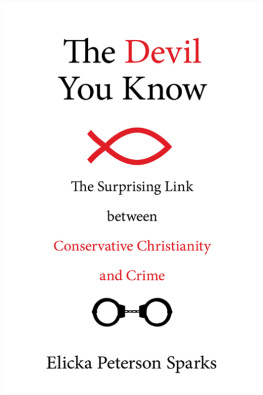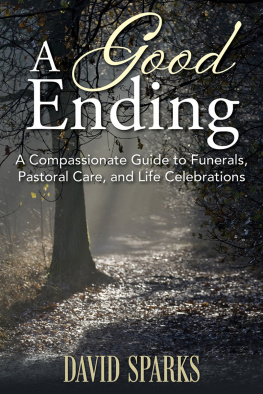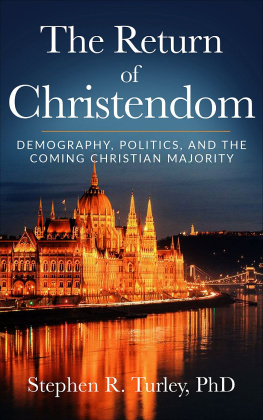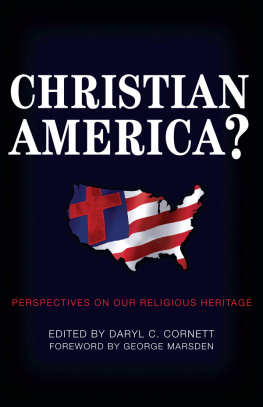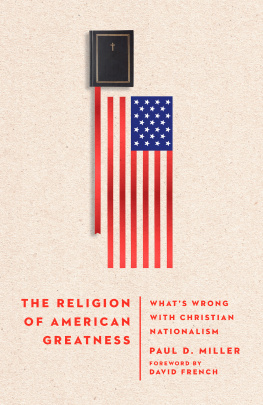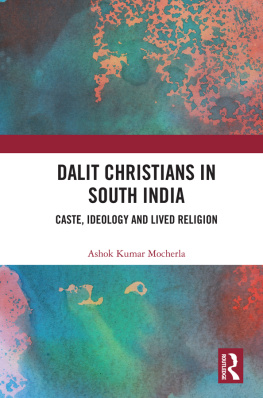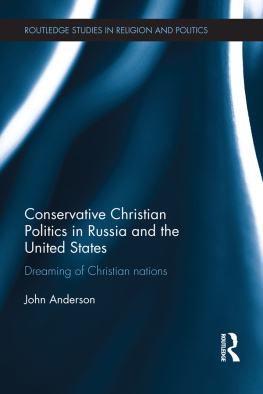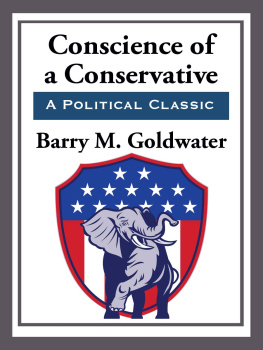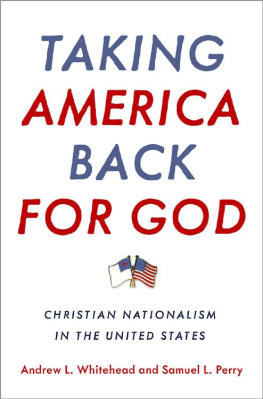
Many people helped, supported and encouraged me in the completion of the research for this book, and I would especially like to thank Maggie, Jessica, and Megan Sparks, Cathy Marcum, Kit Gruelle, Brian Ellison, Jennifer Kopolow, Rose Hepworth, Janet Kernis, Julia Kent, Renee Scherlen, Julianne Stone, Kenna Quinet, Sunny Townes Stewart, Laura McCune, Shelly Wilson, Bonnie Berry, Rick Rosenfeld, Janet Lauritsen, Alissa Ackerman-Acklin, and my colleagues in the Department of Government and Justice Studies at Appalachian State University. I have the best friends and colleagues in the world. Thanks also to my editor, Sheila Stewart, who made this a better book. To my parentsthanks for putting up with me. We all know that this particular apple fell really far from the tree, but I'll always be glad you're my Mom and Dad. Thank you all so much.

Abraham, Ken. Who Are the Promise Keepers? Understanding the Christian Men's Movement. New York: Doubleday, 1997.
Abramowitz, Alan I., and Kyle L. Saunders. Is Polarization a Myth? Journal of Politics 70 (2008): 54255.
Adams, John. A Defence of the Constitutions of Government of the United States of America (17871788). In The American Enlightenment: The Shaping of the American Experiment and a Free Society, edited by Adrienne Koch, 258. New York: George Braziller Press, 1965.
. The Portable John Adams. New York: Penguin Classics, 2004.
. Thoughts on Government: Applicable to the Present State of the American Colonies: In a Letter from a Gentleman to his Friend. Independence, KY: Gale, Sabin Americana, 2012.
Adorno, Theodor W., Else Frenkel-Brunswik, Daniel J. Levinson, and Nevitt Sanford. The Authoritarian Personality. New York: Harper and Bros, 1950.
Aebi, Marcelo F., Martin Killias, and Cynthia Tavares. Comparing Crime Rates through Police or Survey Data? The International Crime (Victim) Survey, the European Sourcebook of Crime and Criminal Justice and Interpol Statistics Compared. International Journal of Comparative Criminology 2 (2002): 2237.
Agnew, Robert. The Techniques of Neutralization and Violence. Criminology 32 (1994): 40126.
Aho, James A. The Politics of Righteousness: Idaho Christian Patriotism. Seattle: University of Washington Press, 1990.
Akers, Ronald L. Religion and Crime. Criminologist 35 (2010): 26.
Akers, Ronald L., Jodi Lane, and Lonn Lanza-Kaduce. Faith-Based Mentoring and Restorative Justice: Overlapping Theoretical, Empirical, and Philosophical Background. In Restorative Justice: From Theory to Practice, edited by Holly V. Miller, 13965. Bingley, UK: Emerald Group Publishing, 2008.
Albrecht, Stan L., and Tim B. Heaton. Secularization, Higher Education, and Religiosity. Review of Religious Research 26 (1984): 4358.
Alexander, Jeffrey C. Citizen and Enemy as Symbolic Classification: On the Polarizing Discourse of Civil Society. In Cultivating Differences: Symbolic Boundaries and the Making of Inequality, edited by Michle Lamont and Marcel Fournier, 289308. Chicago, IL: University of Chicago Press, 1992.
Alford, John R., Carolyn L. Funk, and John R. Hibbing. Beyond Liberals and Conservatives to Political Genotypes and Phenotypes. Perspectives on Politics 6 (2005): 32128.
Allman, Mark J. Who Would Jesus Kill?: War, Peace, and the Christian Tradition. Winona, MN: Anselm Academic, 2008.
Alms, Ingvild, Alexander W. Cappelen, Erik . Sorensen, and Bertil Tungodden. Fairness and the Development of Inequality Acceptance. Science 328 (2010): 117678.
Almond, Gabriel A., R. Scott Appleby, and Emmanuel Sivan. Strong Religion: The Rise of Fundamentalisms around the World. Chicago: University of Chicago Press, 2003.
Alpert, Geoffrey P., John M. MacDonald, and Roger G. Dunham. Police Suspicion and Discretionary Decision Making During Citizen Stops. Criminology 43 (2005): 40734.
Altemeyer, Bob. Enemies of Freedom: Understanding Right-Wing Authoritarianism. San Francisco: Jossey-Bass, 1988.
. The Authoritarian Specter. Cambridge, MA: Harvard University Press, 1996.
. The Other Authoritarian Personality. Advances in Experimental Social Psychology 30 (1998): 4792.
Altemeyer, Bob, and Bruce Hunsberger. A Revised Religious Fundamentalism Scale: The Short and Sweet of It. International Journal for the Psychology of Religion 14 (2004): 4754.
Alwin, Duane F. Religion and Parental Child-Rearing Orientations: Evidence of a Catholic-Protestant Convergence. American Journal of Sociology 92 (1986): 41240.
Ammerman, Nancy T. Bible Believers: Fundamentalists in the Modern World. New Brunswick, NJ: Rutgers University Press, 1987.
Amoeteng, Acheampong Y., and Stephen J. Bahr. Religion, Family, and Adolescent Drug Use. Sociological Perspectives 29 (1986): 5376.
Anderson, Benedict. Imagined Communities: Reflections on the Origin and Spread of Nationalism. New York: Versa, 1991.
Anderson, Jocelyn E. Woman Submit! Christians and Domestic Violence. Auburndale, FL: One Way Press, 2007.
Anti-Defamation League. The Religious Right: The Assault on Tolerance and Pluralism in America. New York: Anti-Defamation League, 1994.
Appiah, Kwame A. Experiments in Ethics. Cambridge, MA: Harvard University Press, 2008.
Appleby, R. Scott. The Ambivalence of the Sacred: Religion, Violence, and Reconciliation. New York: Rowman & Littlefield, 1999.
Applegate, Brandon K., Francis T. Cullen, and Bonnie S. Fischer. Public Support for Correctional Treatment: The Continuing Appeal of the Rehabilitative Model. Prison Journal 77 (1997): 23758.
Applegate, Brandon K., Francis T. Cullen, Bonnie S. Fischer, and Thomas Van der Ven, Forgiveness and Fundamentalism: Reconsidering the Relationship between Correctional Attitudes and Religion. Criminology 38 (2000): 71954.
Applegate, Brandon K., Francis T. Cullen, Bruce G. Link, Pamela J. Richards, and Lonn Lanza-Kaduce. Determinants of Public Punitiveness toward Drunken Driving: A Factorial Survey Approach. Justice Quarterly 13 (1996): 5779.
Applegate, Brandon K., Francis T. Cullen, Michael G. Turner, and Jody L. Sundt. Assessing Public Support for Three-Strikes-and-You're-Out Laws: Global versus Specific Attitudes. Crime & Delinquency 42 (1996): 51734.
Arendt, Hannah. The Origins of Totalitarianism. 1951. New York: Harcourt, 1994.
Argyle, Michael, and Benjamin Beit-Hallahmi. The Psychology of Religious Behaviour, Belief and Experience. London: Routledge, 1997.
Ariely, Dan. Predictably Irrational: The Hidden Forces that Shape Our Decisions. New York: HarperCollins, 2008.
Armstrong, Karen. The Battle for God: A History of Fundamentalism. New York: Ballantine Books, 2001.
Arndt, Jamie, John J. B. Allen, and Jeff Greenberg. Traces of Terror: Subliminal Death Primes and Facial Electromyographic Indices of Affect. Motivation and Emotion 25 (2001): 25377.
Arndt, Jamie, Jeff Greenberg, Tom Pyszczynski, and Sheldon Solomon. Subliminal Exposure to Death-Related Stimuli Increases Defense of the Cultural Worldview. Psychological Science 8 (1997): 37985.
Arndt, Jamie, Jeff Greenberg, Sheldon Solomon, Tom Pyszczynski, and Linda Simon. Suppression, Accessibility of Death-Related Thoughts, and Cultural Worldview Defense: Exploring the Psychodynamics of Terror Management. Journal of Personality and Social Psychology
Next page
